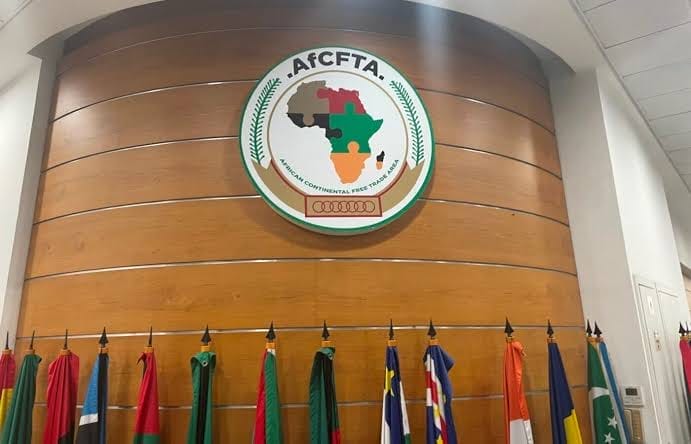Ethiopia will officially commence trading under the African Continental Free Trade Area (AfCFTA) on July 1, 2025, in a significant step toward deepening its regional integration and expanding market access across the continent. The move signals Ethiopia’s commitment to harnessing intra-African trade as a driver of industrialization, job creation, and economic transformation.
ALSO READ: Ethiopia Forecasts Faster Economic Growth for Next Fiscal Year
The East African nation has spent the past year preparing for its formal entry into the free trade framework through targeted policy alignment, trade pilot programs, and institutional readiness. It has adopted a national AfCFTA implementation strategy in consultation with key stakeholders, including government agencies, private sector representatives, and civil society organizations. In parallel, Ethiopia has participated in guided trade pilot programs with neighboring countries such as Kenya, focusing on the movement of agricultural goods, livestock, and manufactured products.
Under the AfCFTA framework, Ethiopia will gradually eliminate tariffs on 90% of traded goods over the next 15 years. This is expected to unlock access to a continental market of over 1.4 billion people, stimulate investment, and enhance the competitiveness of Ethiopian industries such as textiles, agro-processing, coffee, leather, and pharmaceuticals.
Despite these promising prospects, Ethiopia enters the agreement at a time of acute foreign exchange shortages and macroeconomic instability. The country has undertaken significant reforms over the past year, including a major devaluation of the Ethiopian birr in mid-2024 and a shift toward a market-based foreign exchange system. While these measures were part of a broader International Monetary Fund (IMF) reform program and helped improve transparency, the local currency remains volatile, and access to hard currency for businesses is still highly constrained.
This foreign exchange pressure poses a direct challenge to Ethiopia’s capacity to fully leverage AfCFTA. Export-oriented firms, particularly small and medium enterprises (SMEs), often struggle to finance cross-border transactions or scale up operations to meet continental demand. Moreover, the divergence between official and parallel exchange rates has fueled inflation, dampened consumer purchasing power, and introduced uncertainty for traders.
Infrastructure gaps remain another hurdle. Weak transport networks, inconsistent electricity supply, and slow customs clearance processes have long hampered Ethiopia’s trade logistics. Although the government has prioritized investment in road and rail infrastructure, especially the Ethiopia-Djibouti trade corridor, additional reforms will be required to ensure that goods can move efficiently across borders under AfCFTA provisions.
The broader political and security environment also remains a factor. Ethiopia has made progress in stabilizing previously volatile regions, but sporadic unrest and bureaucratic inefficiencies continue to disrupt trade flows and deter foreign investment.
ALSO READ: Ethiopia’s Tigray Region Faces Renewed Uncertainty as Fragile Peace Teeters
Nevertheless, Ethiopia’s formal entry into AfCFTA is viewed by analysts as a strategically important development. The agreement has the potential to serve as a catalyst for policy discipline, institutional reform, and market-driven growth. By streamlining customs procedures, harmonizing standards, and reducing non-tariff barriers, AfCFTA offers Ethiopia an opportunity to diversify its economy, integrate into regional value chains, and accelerate its transition from an agriculture-based economy to a manufacturing and services-driven one.
Looking ahead, Ethiopia’s success under AfCFTA will depend on how effectively it addresses its macroeconomic imbalances, supports the competitiveness of its private sector, and strengthens trade-related infrastructure. The next phase of implementation will focus on scaling up support to exporters, improving access to trade finance, and ensuring that the gains from regional trade translate into broad-based economic development.
As July 1 approaches, Ethiopia stands at a critical juncture. The AfCFTA presents both a challenge and an opportunity, one that will test the resilience of its economic reforms and the capacity of its institutions to deliver inclusive and sustainable growth through deeper continental integration.

